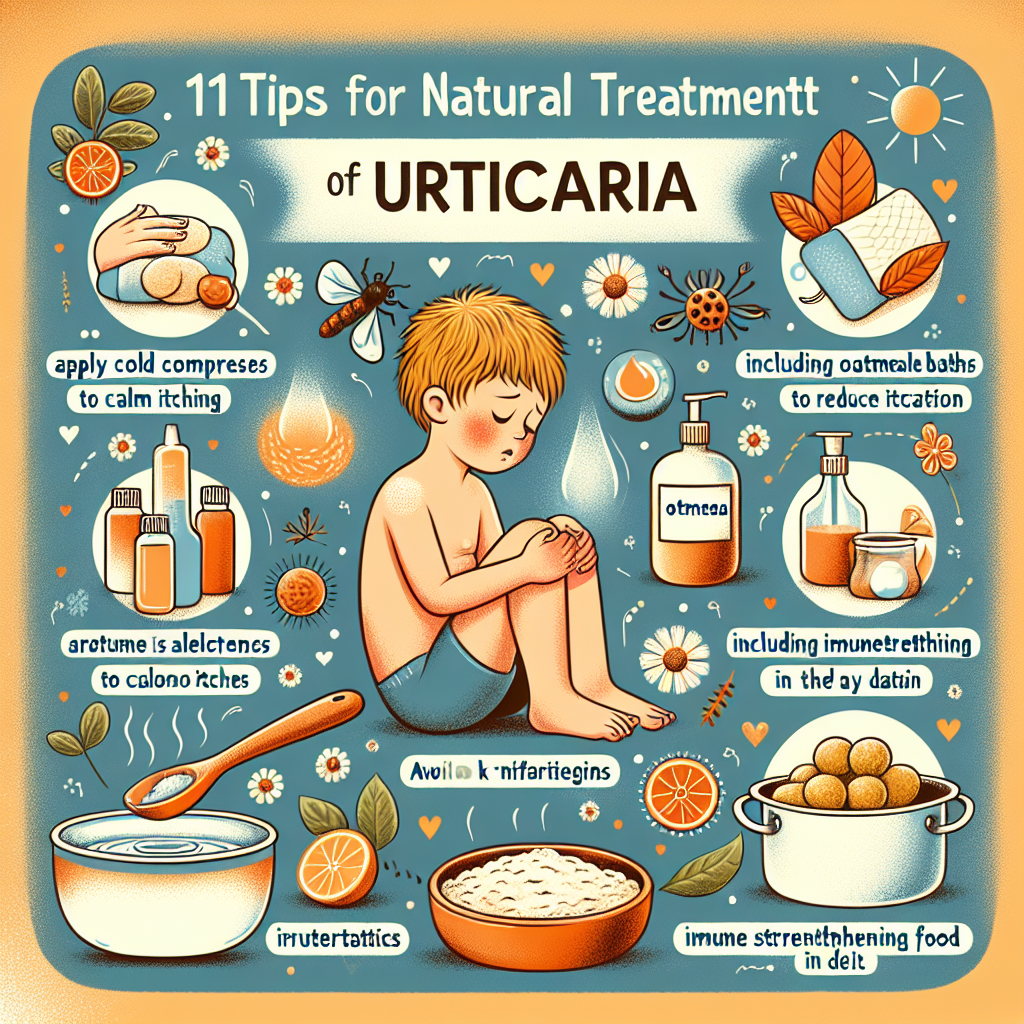Child Development: A Complete Guide to the Essential Stages
When it comes to children's health, parents are always looking for the best treatment methods, especially when dealing with conditions like hives. Natural treatments are becoming increasingly popular, offering gentler and less invasive options for little ones. In this article, we will explore 11 effective tips for the natural treatment of hives in children, aimed at supporting their harmonious development and providing them with the necessary comfort.
Motor Development
Urticaria can have a significant impact on a child's motor development. Rashes and itching can reduce the desire for movement and play, thereby interrupting progress in the development of motor skills. That is why it is important to apply treatments that calm the symptoms and allow the child to continue with his daily activities.
One of the recommended natural treatments is the use of cold compresses. Applying them to the affected areas can reduce inflammation and itching, encouraging the child to be active. Baths in lukewarm water with baking soda or oatmeal can also have soothing and emollient effects.
Language development
While we focus on treating the physical symptoms of urticaria, we must not neglect the impact it can have on language development. Feelings of discomfort and irritation can cause the child to be more withdrawn and less willing to communicate.
Encouraging the child to express his sensations and feelings about his health condition is vital. Sharing experiences and using vocabulary related to well-being can help your child develop communication skills. Natural remedies such as honey with cinnamon can be administered, which have anti-inflammatory and anti-allergic properties, while encouraging dialogue about treatments and health status.
Holistic Approach in the Treatment of Urticaria
Treating urticaria in children requires a holistic approach, which also includes attention to nutrition. It is important to eliminate foods from the diet that may trigger or worsen symptoms, such as dairy, eggs or artificial additives.
In addition to the right diet, we can use medicinal plants in the form of teas or tinctures. For example, nettle tea can help purify the blood and reduce allergic reactions, while calendula tincture has soothing and anti-inflammatory properties.
Lifestyle and Urticaria
A balanced lifestyle, with enough sleep and stress reduction, can help relieve hives. A regular sleep routine and creating a calm environment in the bedroom are essential for a child's immune system to function effectively.
Also, outdoor activities in natural environments can have a calming effect on urticaria symptoms, thanks to fresh air and exposure to sunlight, known for its role in vitamin D synthesis.
Naturist Topical Treatments
Some topical treatments can be very effective in soothing irritated skin. Ointments and creams based on natural ingredients such as aloe vera, olive oil or shea butter can be applied directly to the skin to provide quick relief.
In addition, taking natural supplements such as fish oil or probiotics can strengthen the skin's natural barriers and improve the body's immune response.
Psychological involvement in the treatment of urticaria
The psychological component is often underestimated in the treatment of urticaria. The child's emotional state can influence the severity and frequency of urticaria episodes. Therefore, it is important to have an approach that also includes emotional support.
Relaxation techniques such as yoga for children or meditation can help reduce stress levels, which can have a positive impact on hives symptoms. Role-playing and activities that stimulate creativity can also help improve a child's emotional state.
Community Support
It is essential that parents feel supported and properly informed in the management of urticaria. Support groups, either online or in the community, can provide valuable information and treatment suggestions from the experiences of other parents and professionals.
Discussions about various natural remedies, recipe exchanges, and strategies for managing anxiety associated with hives can be extremely helpful for parents and, by extension, children.
Conclusion
Treating urticaria in children with natural remedies requires patience and attention to the individual needs of each child. Whether we're talking about local approaches, dietary changes or psychological support, there are a multitude of options available to ensure effective management of this condition.
Implementing these 11 tips can bring significant improvements in your child's well-being, while also facilitating all-round development. We encourage you to explore these options and find the right combination for your child's needs. If you feel the need for more information or support, feel free to join our communities or subscribe to our newsletter for regular tips and updates on childcare and natural health.














































































































































